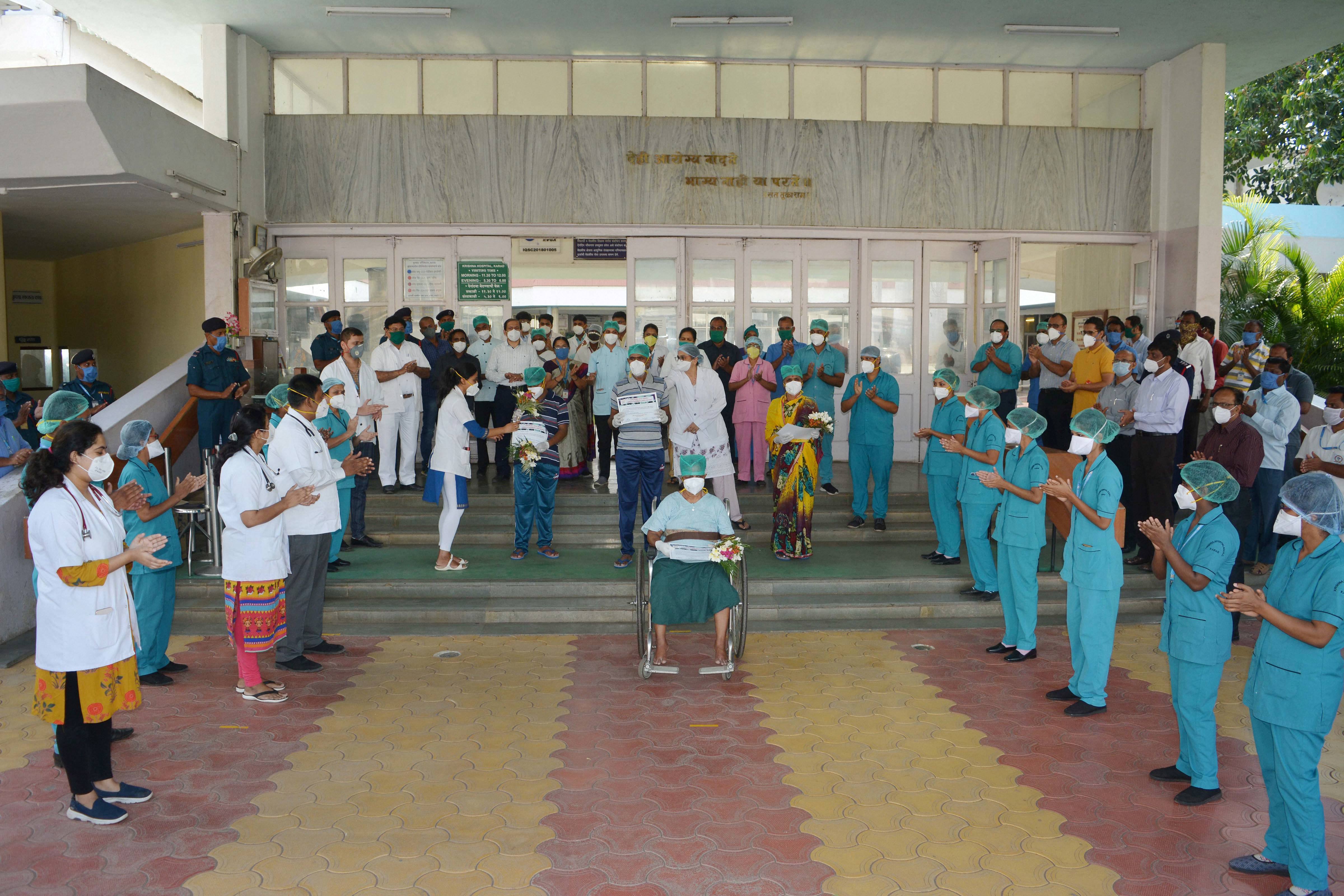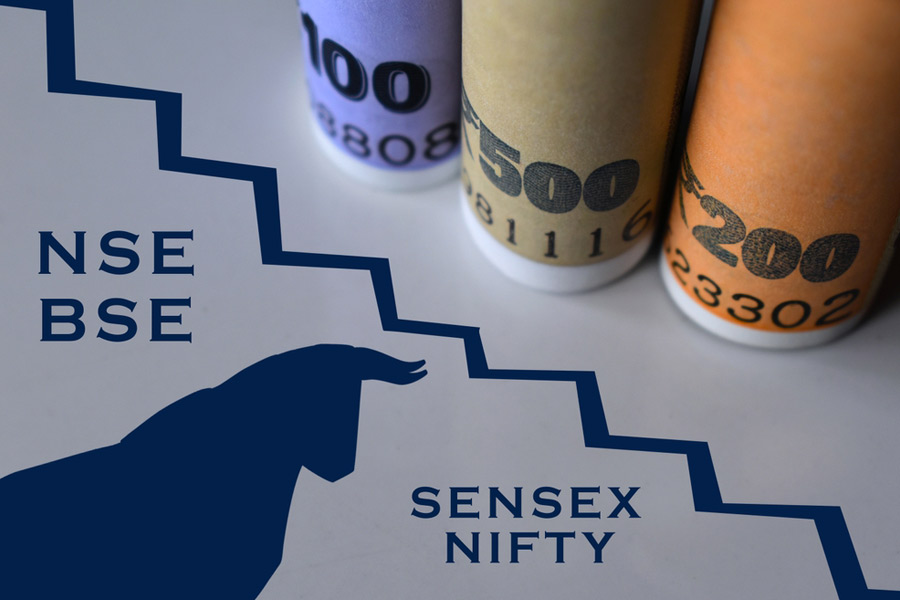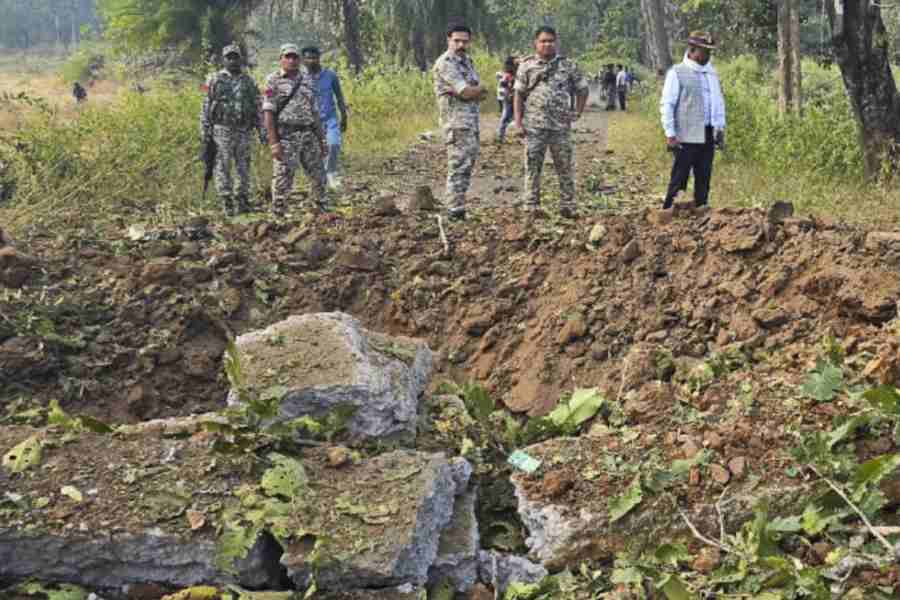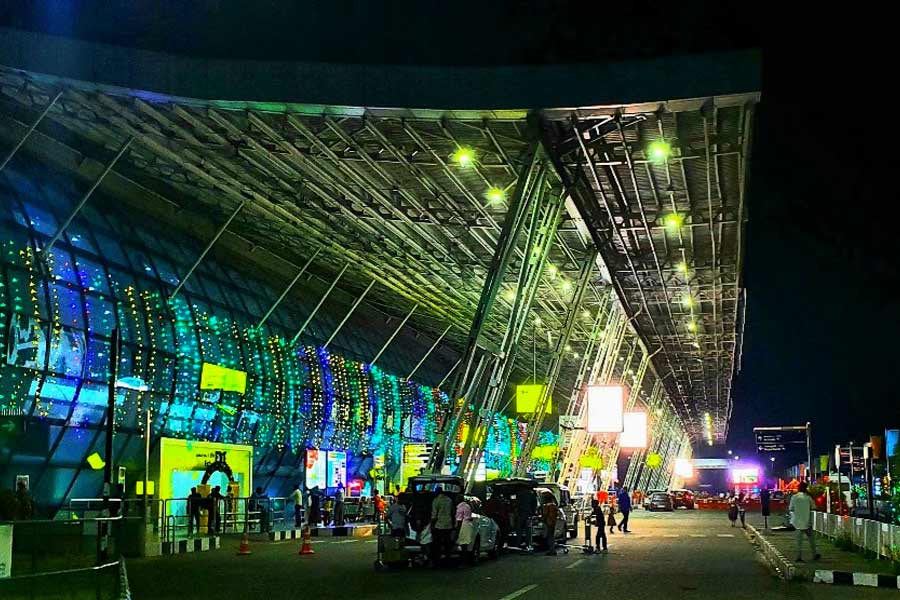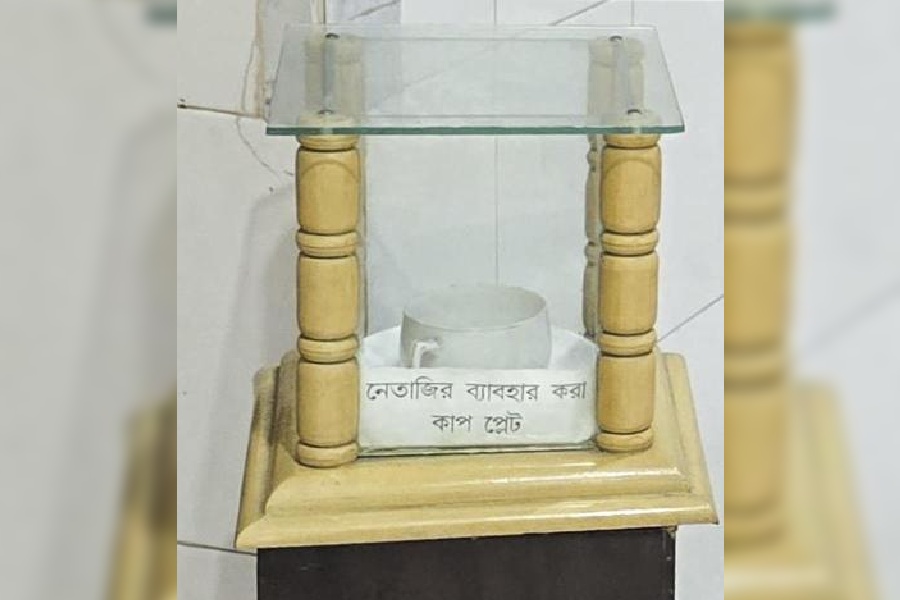Virus hits hotel industry
The outbreak of Covid-19 has adversely impacted the occupancy levels at hotels across 11 major cities, resulting in a decline of up to 29 per cent in revenue per available room (RevPAR) during January-March this year, according to JLL India.
While occupancy level fell in a range of 5-17 percentage points, the RevPAR was down 13-29 per cent across 11 cities—Ahmedabad, Bengaluru, Chennai, Delhi, Goa, Gurugram, Hyderabad, Jaipur, Mumbai, Pune and Calcutta.
'The impact of Covid-19 has severely impacted the domestic hotel and hospitality sector in Q1 2020,' property consultant JLL India said in a report.
According to the data, both the occupancy level and RevPAR went down in all the 11 cities individually.
The occupancy level fell most in Delhi at 16.9 percentage points during January-March 2020 as compared with the year-ago period, followed by Jaipur at 16.4 percentage points.
There was a decline of 15.2 percentage points each in the occupancy level in hotels across Mumbai, Bengaluru and Gurugram.
Hotels in Calcutta saw a drop of 13.5 percentage points in the occupancy level. Hyderabad witnessed 12.1 percentage points fall, Pune 11.8 percentage points, Goa 10 percentage points, Chennai 9.7 percentage points and Ahmedabad 5.1 percentage points.
In RevPAR, the maximum fall was seen in Bengaluru at 28.5 per cent, followed by Delhi 20.3 per cent, Mumbai 20 per cent, Kolkata 19.8 per cent, Jaipur 19.6 per cent, Gurugram 19.5 per cent, Goa 15.3 per cent, Chennai 14.8 per cent, Hyderabad 13.6 per cent, Pune 13.4 per cent and Ahmedabad 13.2 per cent.
BRICS' bank disburses $1 loan billion to India
The New Development Bank of the BRICS countries has fully disbursed USD one billion emergency assistance loan to India to help it contain the spread of Covid-19 and reduce human, social and economic losses caused by the coronavirus pandemic.
The Shanghai-based New Development Bank (NDB) was established by the BRICS (Brazil, Russia, India, China, South Africa) countries in 2014 and is headed by veteran Indian banker K. V. Kamath.
The purpose of the bank is to mobilise resources for infrastructure and sustainable development projects in BRICS countries and other emerging economies and developing nations, complementing the existing efforts of multilateral and regional financial institutions for global growth and development.
- Read full story here
KSRTC donates 1-day pay of staffers to CM relief fund
Officials and employees of all the four road transport corporations in Karnataka have contributed their one day salary amounting to Rs 9.85 crore to the chief minister's Covid-19 relief fund.
Deputy CM Laxman Savadi, who also holds the transport portfolio, handed over the cheque to chief minister B. S. Yediyurappa on Wednesday, an official statement said.
State's bus services are operated by Karnataka State Road Transport Corporation (KSRTC), Bangalore Metropolitan Transport Corporation (BMTC), North West Karnataka Road Transport Corporation (NWKRTC) and North East Road Transport Corporation (NERTC).
Top officials of the road transport corporations and transport department were present.
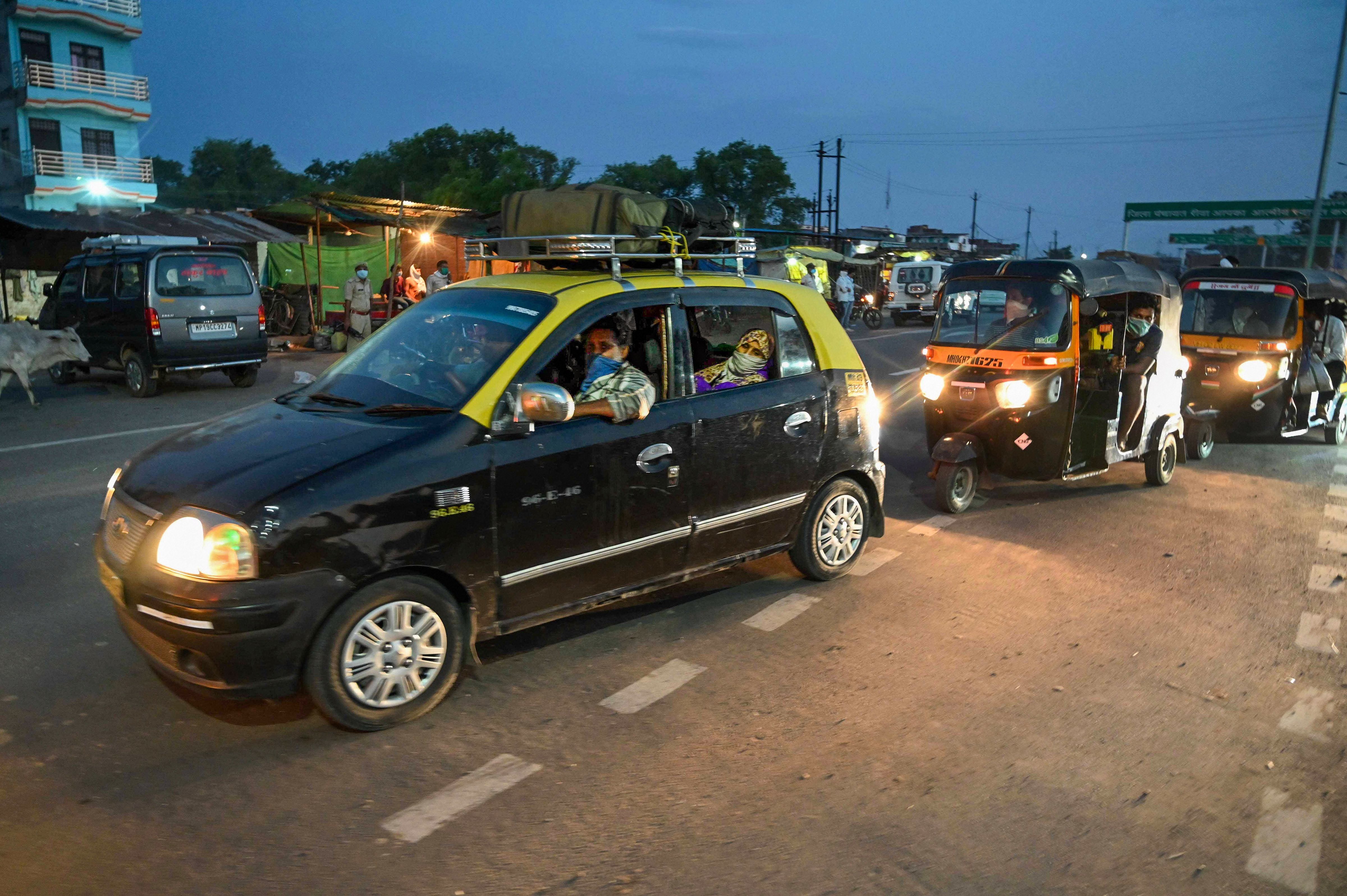
Migrants travelling via taxis from Mumbai ride towards their native places during the ongoing nationwide Covid-19 lockdown, at Uttar Pradesh- Madhya Pradesh Border, Chakghat in Prayagraj, Tuesday, May 12, 2020 PTI
Nine states and UTs including Chhattisgarh, Ladakh, Manipur and Meghalaya have not reported any new case of Covid-19 in the last 24 hours while Daman and Diu, Sikkim, Nagaland and Lakshadweep have not reported any cases so far, Union Health Minister Harsh Vardhan said on Wednesday.
Vardhan, who reviewed the preparedness of Punjab for managing Covid-19, said as on Wednesday 74,281 coronavirus infection cases have been reported from across the country and while the doubling time in the past 14 days was 11, it has improved to 12.6 in the last three days.
As the death toll due to Covid-19 rose to 2,415 and the number of cases climbed to 74,281 registering an increase of 122 deaths and 3,525 cases in the last 24 hours till Wednesday 8 AM, the health minister said the fatality rate is 3.2 per cent and the recovery rate is pegged at 32.8 per cent.
Director of National Centre for Disease Control (NCDC), Dr S K Singh, who made a presentation on the status of Covid-19 cases in Punjab said as on May 12 all 22 districts stand affected by the disease with total 1,913 cases.
Three districts -- Ludhiana, Jalandhar and Patiala -- are in the red zone and 15 are in the orange zone. The total number of samples collected is 43,999 with sample positivity rate at 4.3 per cent, he said, according to a health ministry statement.
The pilgrims who returned from the Nanded Hazoor Sahib in Maharashtra constituted the bulk of cases in Punjab with 1,225 of the total 4,216 testing positive. The state has another challenge with round 20,521 migrant workers returning from other parts of the country, Singh said.
Punjab, according to health ministry data, has recorded 32 deaths and 1,914 coronavirus cases till Wednesday 8 am.
According to the statement, Vardhan during the meeting appreciated the steps taken so far by the Punjab administration regarding the stringent adherence to lockdown measures, meticulous contact tracing, screening of the entire population in the containment areas and home delivery of essential services, items and medicines.
He also requested the state to further strengthen SARI and ILI screening in unaffected districts, in addition to ensuring that non-Covid health services such as immunisation drives, TB case finding and treatment, providing blood transfusion for dialysis patients, treatment of cancer patients and antenatal care of pregnant women are not adversely affected, the statement said.
'As the available data indicate a decline in the notification of TB cases in the private and public clinics, the state needs to give priority to this area too,' Vardhan highlighted.
Pointing out that timely payment of salaries and performance-linked incentives would boost the morale of the frontline health workers, the state was requested to release these in time, the statement said.
Vardhan also suggested that the downloading of Aarogya Setu app should be made compulsory for all returnees for better contact surveillance and suitable medical interventions.
Punjab Health Minister Balbir Singh Sidhu stated that even during the lockdown, the OPD services had been continued and non-Covid healthcare delivery has not suffered, the statement said.
The state has screened 6,58,000 people through house-to-house surveillance. Punjab has developed its own dashboard which generates a heat map which is used to define and demarginalise the emerging hotspots for effective containment measures, the statement said.
Sidhu said all the returning pilgrims from Nanded Sahib have been screened, tested and quarantined to prevent them from interacting with the community at large, thus effectively preventing the spread of the virus.
Moreover, a death audit has also been undertaken which has indicated that patients with co-morbidities formed a large percentage of the Covid-19 deaths in Punjab while more than 85 per cent patients are asymptomatic, Anurag Agrawal, Principal Secretary (Health) stated.
Elaborating on the health infrastructure preparedness in the country, Vardhan said 900 dedicated Covid-19 hospitals with a capacity of 1,79,882 beds (1,60,610 isolation and 19,272 ICU beds), 2,040 dedicated Covid-19 health centres with 1,29,689 beds (1,19,340 isolation and 10,349 ICU beds) and 5,577 Covid-19 care centres with 4,93,101 beds are available as of now.
Also, 8,708 quarantine centres are available till now, the statement said.
The Centre has also provided 78.42 lakh N95 masks and 42.18 lakh Personal Protective Equipments (PPEs) to the state, UTs and central institutions, he said.
The Union health minister also added that as of Tuesday 2.75 per cent active Covid-19 patients were in ICU, 0.37 per cent on ventilators and 1.89 per cent on oxygen support.
Vardhan highlighted that the testing capacity has increased in the country to 1,00,000 tests per day and a total 18,56,477 tests have been done so far for Covid-19 with 94,708 samples being tested on Tuesday.
The meeting with Punjab was part of a series of one-to-one discussions with various states and UT health ministers and Collectors of Red Zones and high priority districts to take stock of preparedness, and the actions being taken for management of Covid-19 there.
Rail Bhavan shut for two days after staffer tests positive for Covid-19
Rail Bhavan, which is the headquarters of the Indian Railways in Central Delhi, will be shut for the next two days after an RPF staffer tested positive for coronavirus on Wednesday, officials said.
The employee, working as a clerk in Railway Protection Force (RPF) Director General Arun Kumar's office on the fourth floor of Rail Bhavan, was in quarantine since May 6, they said.
According to an order issued on Wednesday, the building, which houses the Railway Board, will be shut on May 14 and 15 and intensive sanitisation of all the rooms and common areas will be done.
Over 50 percent of households in rural India cutting down on food items after lockdown: Study
Over 50 per cent of households in rural India are cutting down on their food items following the Covid-19-induced lockdown, according to a study by leading civil rights bodies.
The sample size of the collaborative study 'Covid-19 induced Lockdown-How is Hinterland Coping' was over 5,000 households in 47 districts in 12 states of the country.
It was conducted by civil society organisations PRADAN, Action for Social Advancement, BAIF, Transform Rural India Foundation, Grameen Sahara, SAATHI-UP and the Aga Khan Rural Support Programme with research support of Vikas Anvesh Foundation and Sambodhi.
The study showed that 50 per cent of households have reduced the number of meals ever since the lockdown was imposed as part of immediate adjustment for food security. About 68 per cent of households reduced the number of items in their meals, it said.
The nationwide lockdown was imposed from March 25 to April 14, then extended to May 3 and again to May 17 to prevent the spread of the novel coronavirus that has claimed 2,415 lives and infected 74,281 people in the country.
The study showed that 84 per cent households received food items through the public distribution system (PDS), 37 per cent received take home ration.
It said about 24 per cent households borrowed foodgrain in villages and 12 per cent people received free food.
The findings of the study were released in a webinar on Wednesday.
The study found that households have depended on Kharif stock more than Rabi, but that stock is now depleting fast.
The study said borrowing is taking place due to indebtedness and this might increase if the effect of shock prevails. Though asset sales are still low but they are already being reported by a small fraction of respondents, it said.
The states where the study was conducted were Assam, Bihar, Chhattisgarh, Gujarat, Jharkhand, Karnataka, Maharashtra, Madhya Pradesh, Odisha, Rajasthan, Uttar Pradesh and West Bengal.
The study found that another worrying factor was that nearly one-third of the respondents reported that there is a possibility that their children will drop out of schools for discretionary expenses.
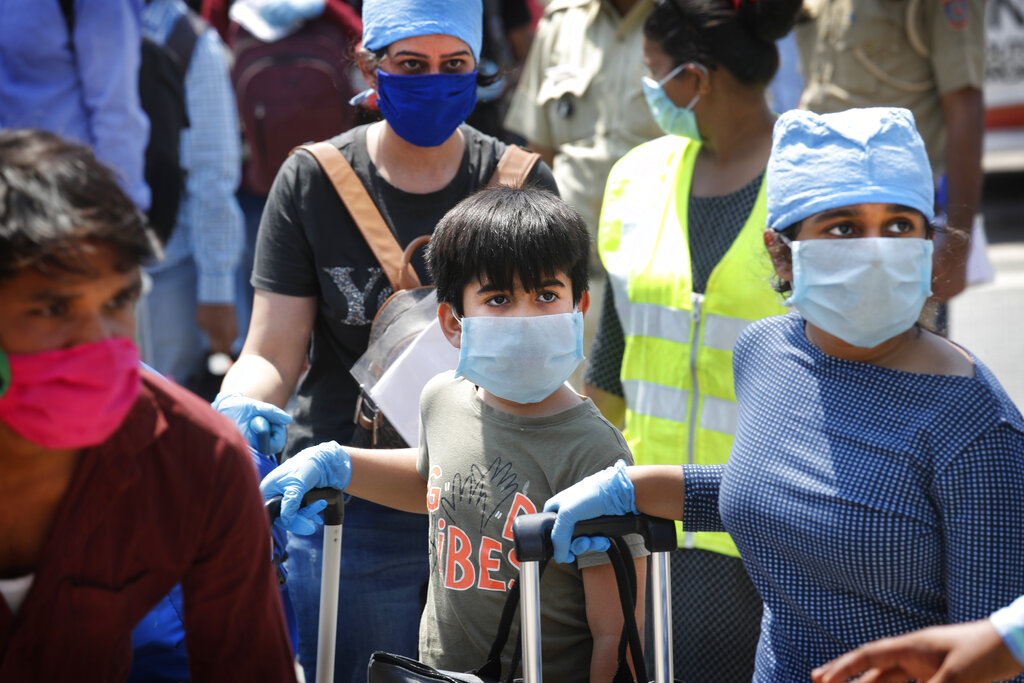
A family looks at a security officer at the entrance of a railway station as they wait to enter the New Delhi railway station in New Delhi, Tuesday, May 12, 2020. AP

